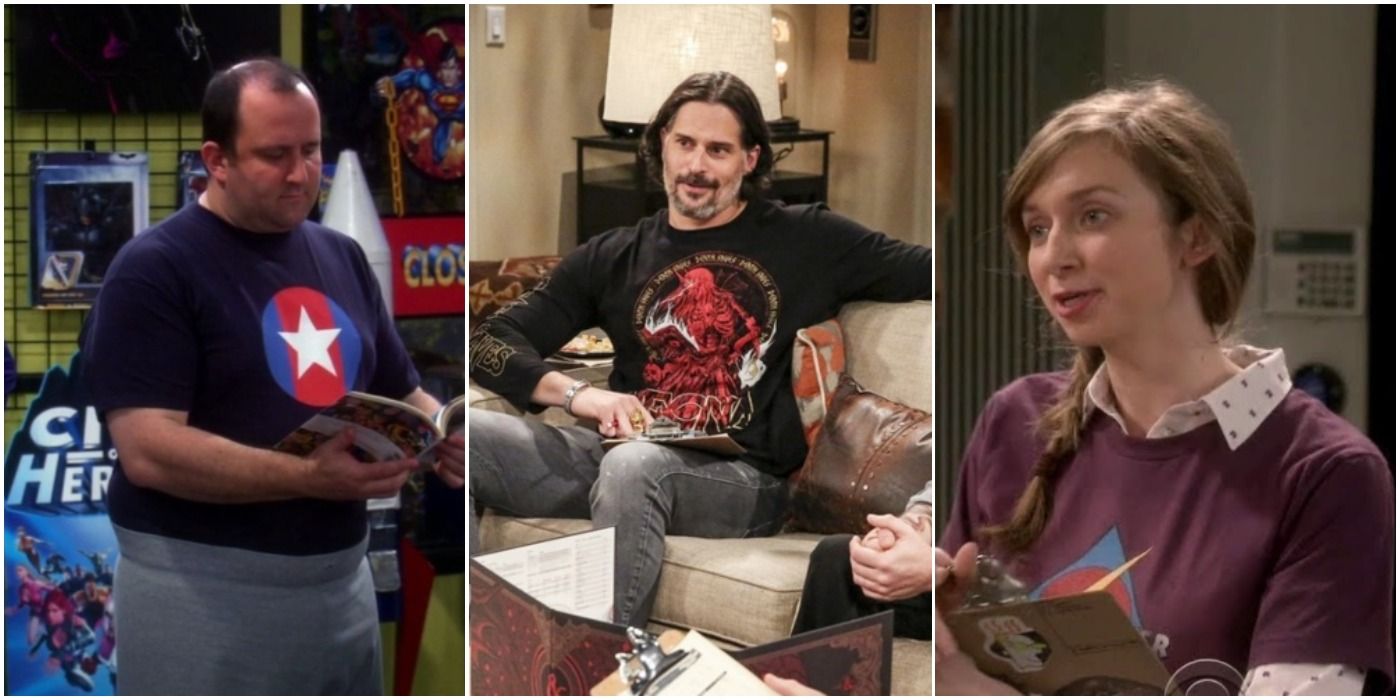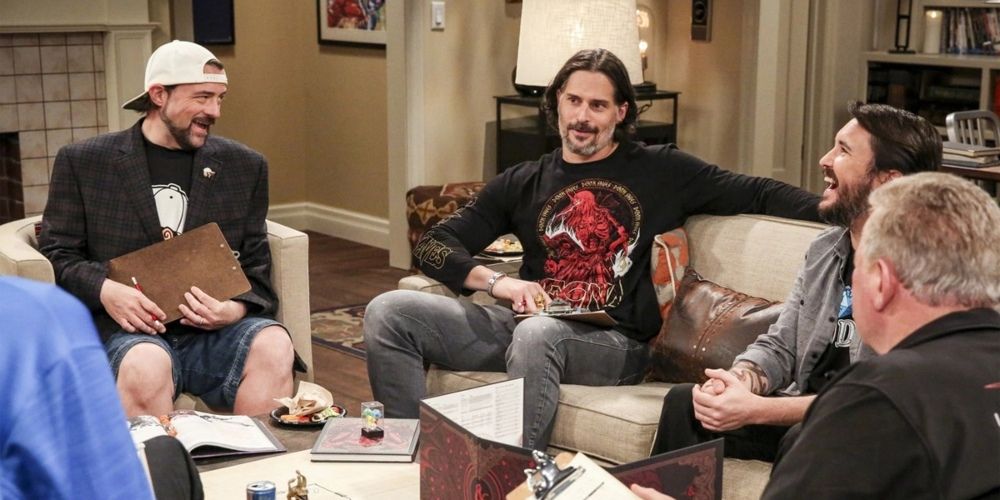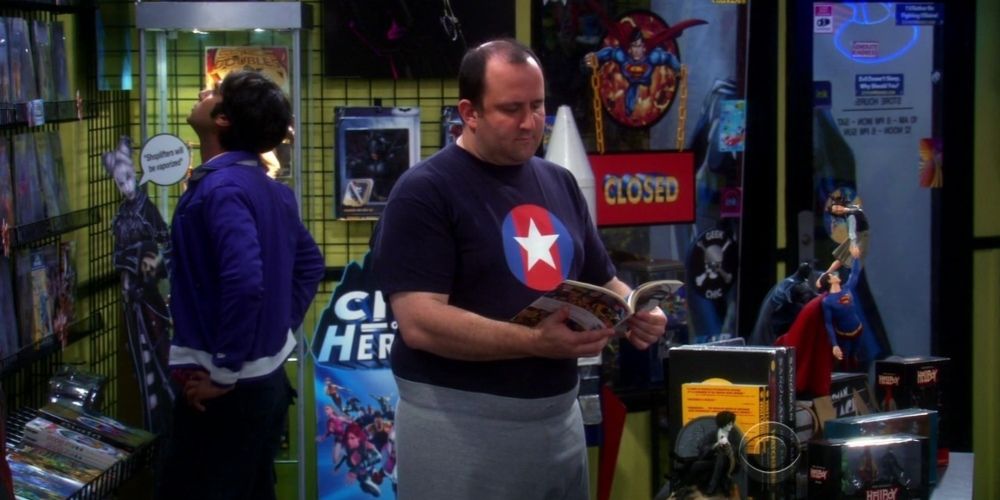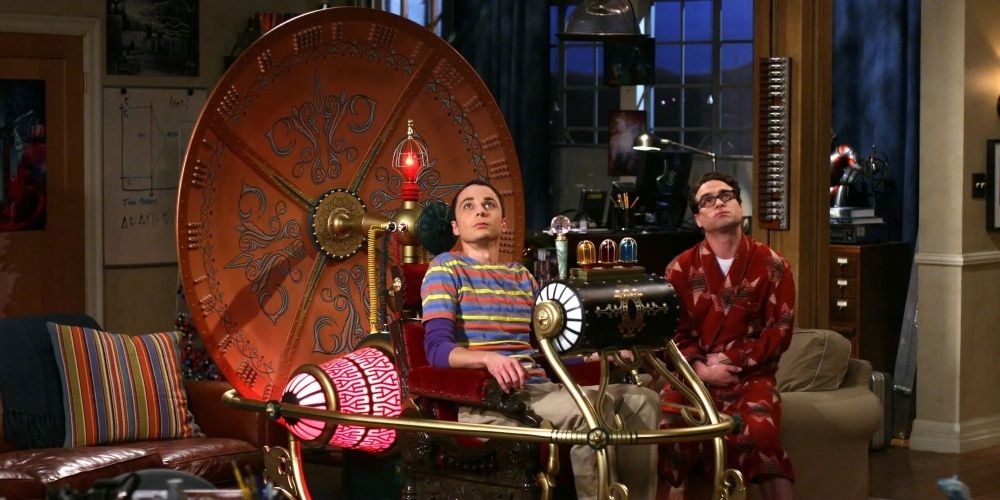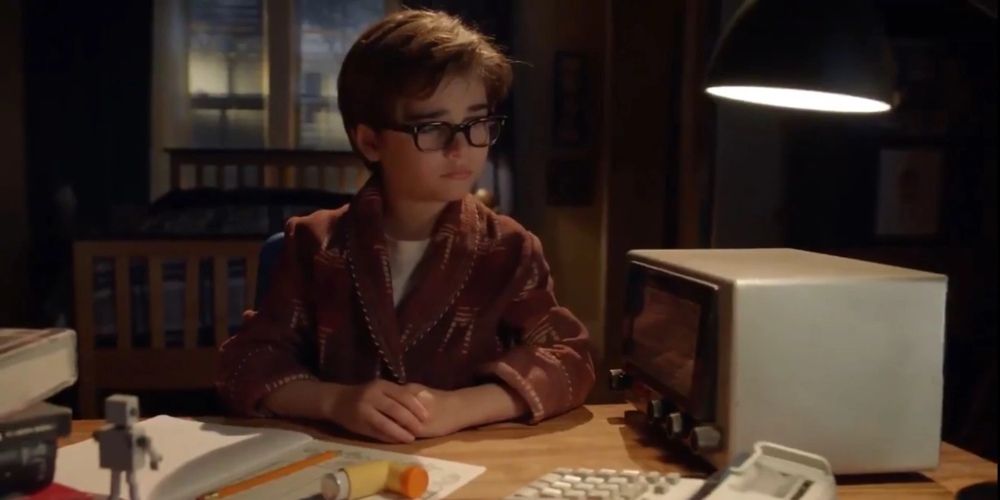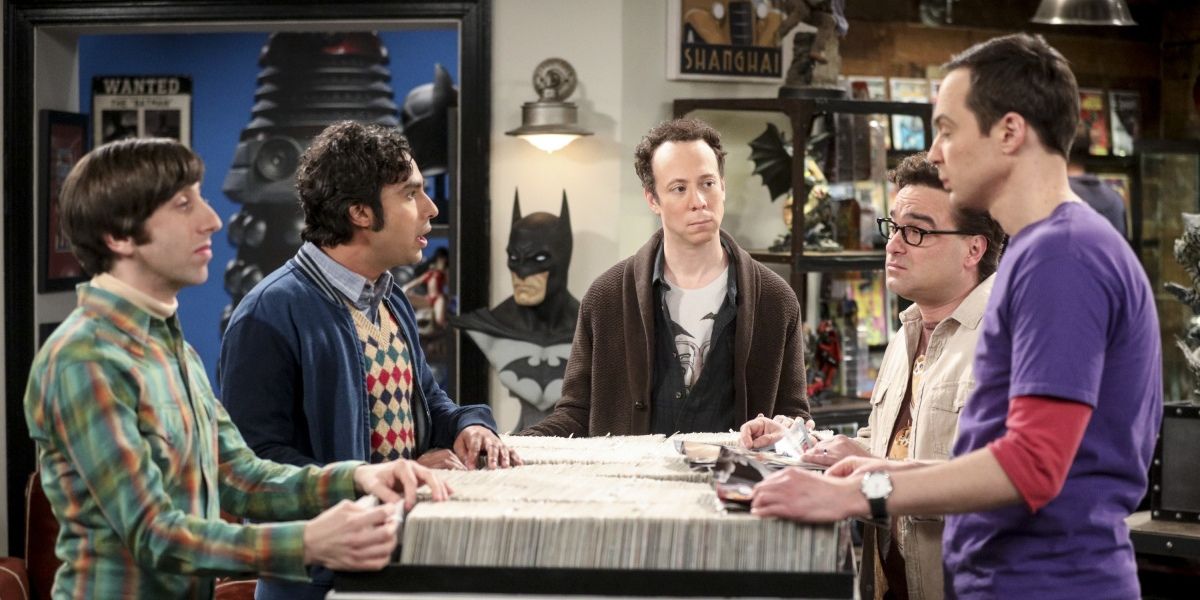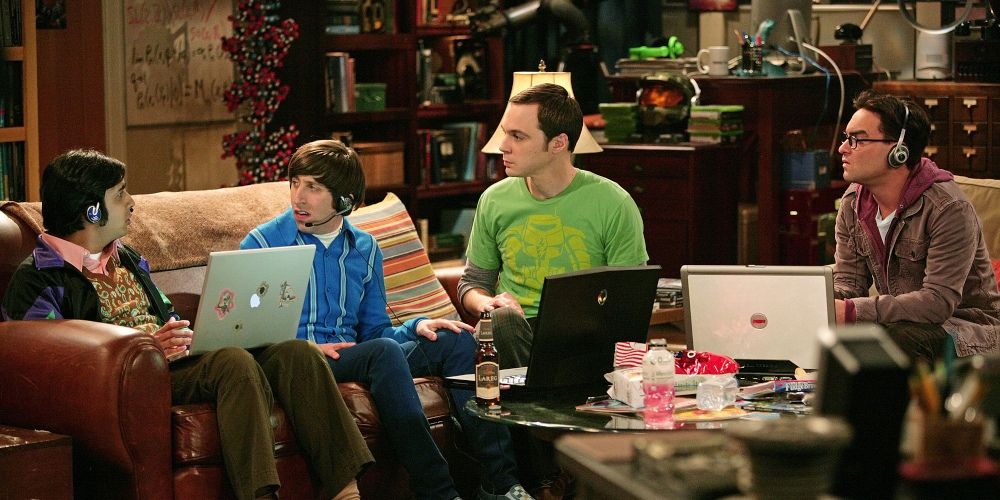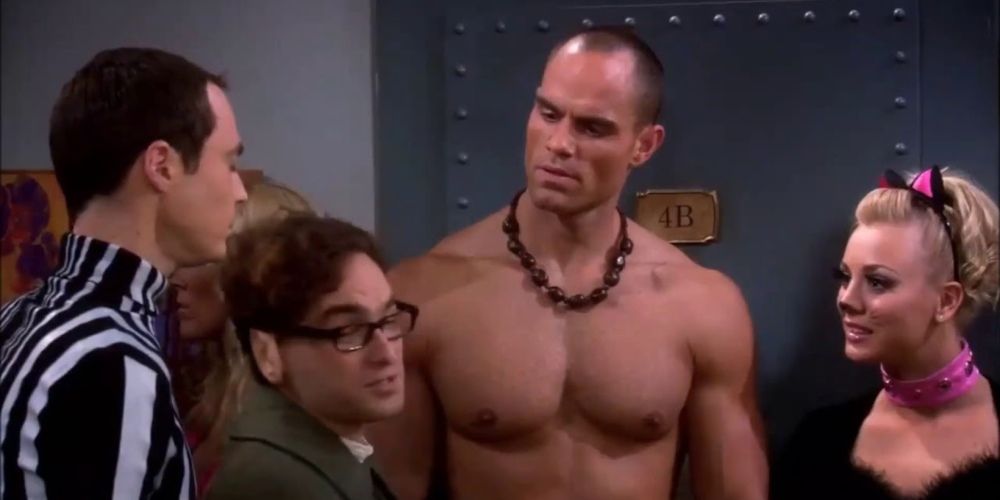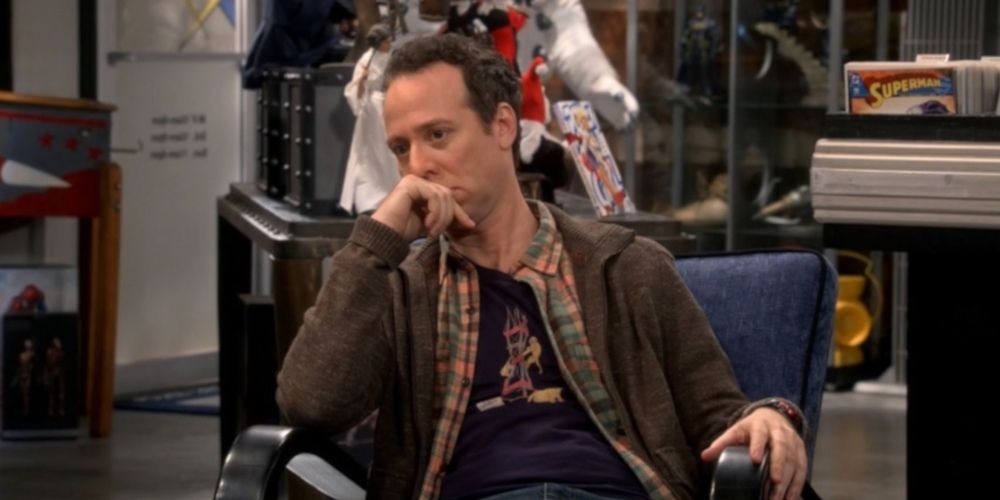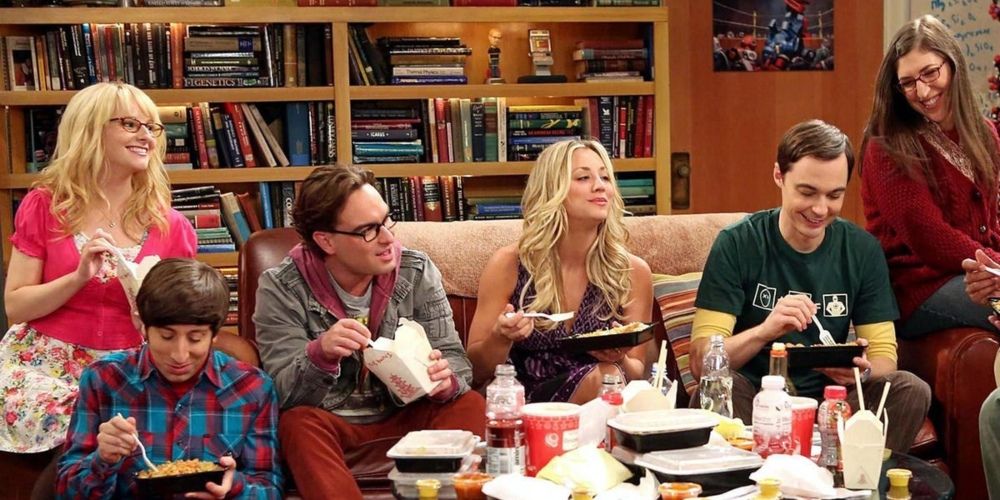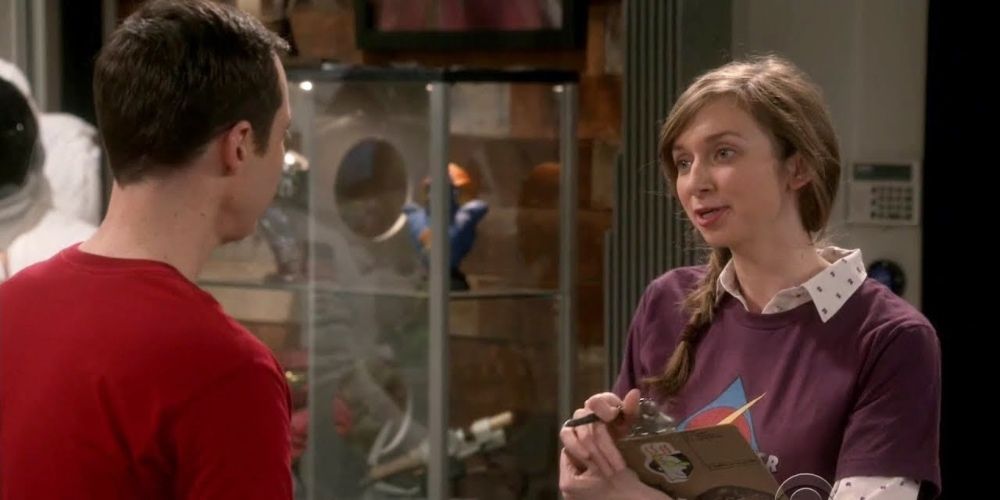Despite running successfully for twelve seasons, some have suggested that The Big Bang Theory was never quite sure how to approach its audiences. Although it centers around 'geeky' characters, and the references to their lifestyle can get surprisingly in-depth, the geeky nature of its protagonists and others like them is often used as a punchline in and of itself.
One of the main criticisms The Big Bang Theory has faced is that it seeks to laugh at 'nerds' - especially comic book fans. Nonetheless, there are also times when The Big Bang was outright kind and supportive of its protagonists and those like them.
10 Respected Fans: Occasionally Shows The 'Cooler' Side Of Nerdy Hobbies
The earliest episodes of The Big Bang Theory were made before the Marvel Cinematic Universe. Big Bang was also before shows like Game Of Thrones and Stranger Things that made nerdy interests more 'mainstream', when they were still considered something of an oddity socially.
Althought Big Bang has been accused of aging poorly, it does, later on, begin to show the more socially-accepted sides of these hobbies. In particular, it shows popular celebrities who are associated with hobbies like comic books and roleplaying games, such as Joe Manganiello.
9 Disrespected Fans: The Patrons Of Stuart's Shop
Despite the nerdy and socially-awkward nature of Raj, Leonard, Sheldon, and Howard, they are shown to be several steps higher in the social ladder than many of the bit-part comic book fans seen in Big Bang. The patrons of Stuart's comic book store, in particular the man known as 'Captain Sweatpants', are occasionally shown, and never in a flattering way.
In The Hofstadter Isotope, Penny enters the comic book store, everyone stops to stare, and Stuart threatens them into acting vaguely 'normal.' From then on, references to Stuart's patrons are usually in the forms of insults or punchlines. Although people of this sort definitely inhabit comic book stores, they are far from the only patrons, and moderates are rarely shown.
8 Respected Fans: An Episode With An Aesop Of Enjoying Collectibles
The Nerdvana Annihilation focuses on the train of events that occur after Leonard puts in a joke bid on a full-size time machine prop from The Time Machine. This leads to Penny snapping at him and the others about being obsessed with 'toys', and Leonard deciding to sell his collection.
After this, Sheldon and Penny get into an argument, with Sheldon pointing out that Penny, an alleged 'normal person', also collects 'toys' of various sorts, and that she was unfair to Leonard - an assessment Penny agrees with. Ultimately, The Nerdvana Annihilation comes with a moral of not giving up your hobbies, no matter how nerdy, just because others expect you to.
7 Cruel To Fans: Suggests Comic Books Are Part Of Unhappy Childhoods
Being sitcom characters, all four of the main geeks of The Big Bang Theory have somewhat unhappy childhoods that leave them with their fair share of neuroses. Although Sheldon's is explored at-length in Young Sheldon, the others only get occasional references, usually referring to their loneliness and their reading of comic books for comfort.
As such, it can easily be seen that Big Bang is suggesting that comic books are used by lonely or bullied people to fill in the gaps - or that there is a feedback loop with being bullied for being fans of comic books. As there's a lack of an explicitly-described happy childhood that happened to involve comic books, it can come off as disrespectful.
6 Respected Fans: Several Deep Comic Book References
The nerd references on The Big Bang Theory can be something of a mixed bag. To keep the jokes in territory that the audience can mostly understand, the interests outright discussed tend to be of the relatively mainstream variety. These include Star Trek, Superman, Batman, Lord Of The Rings, Spider-Man, and Game Of Thrones, among others.
Despite the surface-level nature of many of the references - and the inaccurate nature of others - Big Bang has also made some surprisingly in-depth references to comic books. In particular, some topical comic book events such as Final Crisis are referenced, showing some genuine appreciation for the medium, even if it is used for jokes.
5 Cruel To Fans: The Innate Nature Of Raj, Sheldon, Leonard, and Howard
Although they undergo vast amounts of character development into becoming better, more socially aware, and more likable people, the four scientists at the heart of The Big Bang Theory begin in a fairly desperate social state. They're romantically unlucky, awkward around others, and lacking awareness of social norms.
Big Bang presents this as fairly typical of comic book fans, and even when the characters get their development, it is explicitly shown to be as a result of the more 'normal' people in their life, such as Penny.
4 Respected Fans: The Repeated Point That Bullying People For Their Interests Is Low
Even when The Big Bang Theory is making its nerdy protagonists the butt of the joke, it has never had time for bullies. The negative effects of bullying are explored through several storylines, from multiple perspectives. Being a bully is a sure-fire way to ensure Big Bang's narrative loses all sympathy for a character.
Some episodes explicitly have the characters mocked for their nerdy interests, including comic books. Although sometimes these episodes see the characters dispirited with their hobbies, the point is always that the bullies are in the wrong, and that people should be left alone for their interests.
3 Cruel To Fans: Stuart's Changing Characterization
The Big Bang Theory faces occasional criticism for being mean-spirited, and never does that ring more true than in the character of Stuart - and especially how he was changed. In his earliest appearances, Stuart is shown to be witty, charismatic, a talented drawer, and self-aware about the status of nerds - even being compared favorably to Leonard.
In every other subsequent appearance, he became the explicitly-stated biggest loser in the cast. He was broke, looked down upon, lacking entirely in social norms, and a target for bad luck. His change in character is fairly inexplicable, and seems to be because the writers couldn't imagine a happy owner of a comic book store.
2 Respected Fans: The Way The Characters Mature Without Losing Their Interests
As with many sitcoms focused on characters in their late twenties and early thirties, The Big Bang Theory has a recurring storyline of the characters maturing and progressing through stages in their life. Beginning as single and at the beginning of their careers, they eventually become husbands, fathers, and leaders in their fields.
Crucially, despite some wobbles, the cast do this without giving up their interests in comic books, avoiding the implication that those things are childish, or unable to be enjoyed by successful people. When people do try and make them get rid of their things as part of 'maturing', it is usually shown as a flaw of that person's, rather than justified by the narrative.
1 Cruel To Fans: Treating Female Comic Book Fans Like Unicorns
Many jokes in the earlier seasons of The Big Bang Theory indicate that women never buy comic books, set foot in comic book stores, or take part in other nerdy hobbies. These jokes were toned down over time, but Big Bang never put in the effort to show female fans engaging in these hobbies.
Furthermore, the rare few Big Bang does depict - such as Alice and Denise - are typically treated as if they're something rare or shocking, with a great amount of focus being put on their gender. More than a few female comic book fans who watched Big Bang were put off by this depiction.

